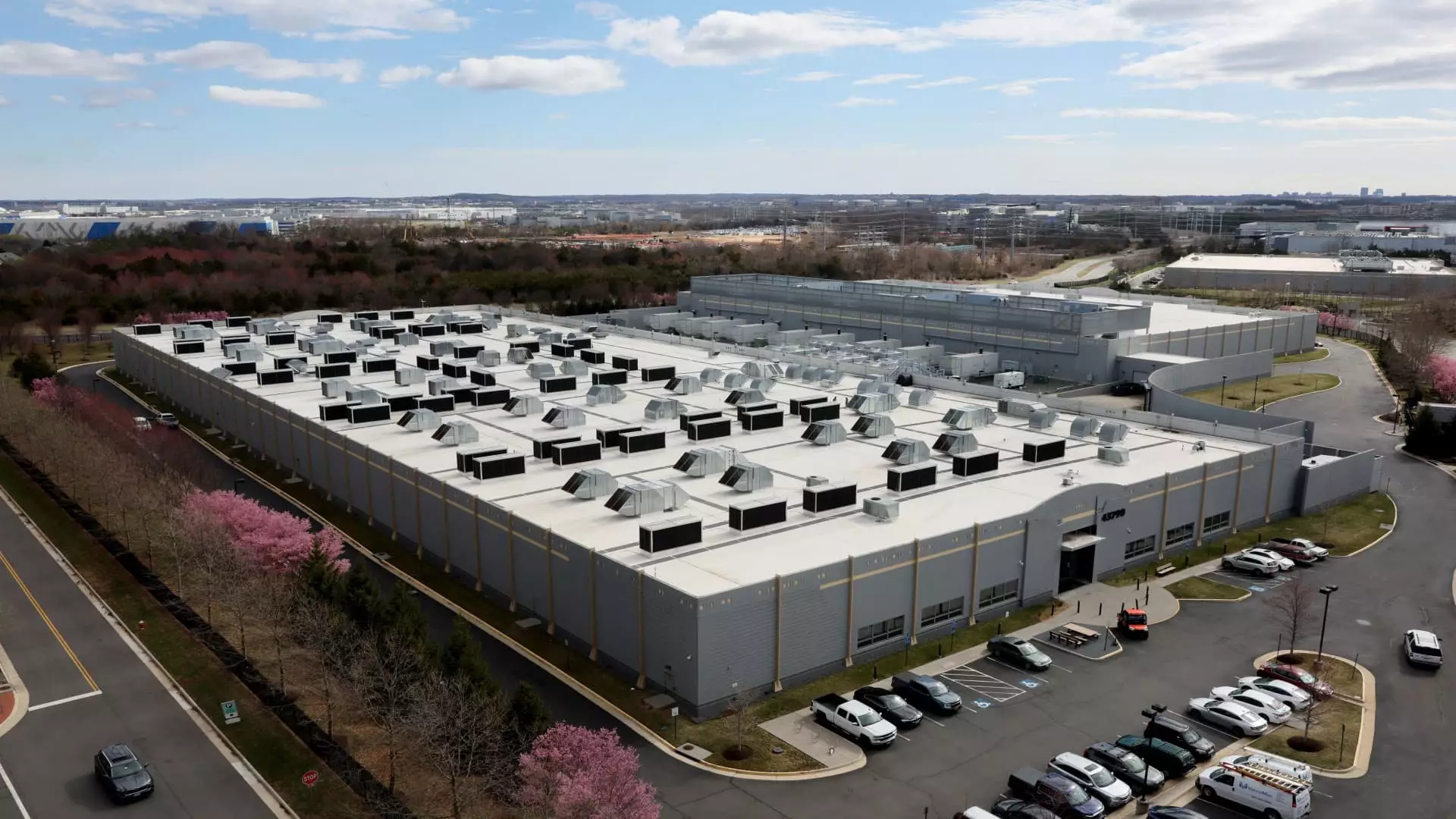In a move that underlines the escalating demand for energy-intensive data centers, Abu Dhabi’s sovereign wealth fund, ADQ, and the American private equity firm Energy Capital Partners (ECP) have forged a transformative $25 billion partnership aimed at enhancing power generation capabilities. This ambitious venture, announced on a recent Wednesday, is tailored to address the surging energy requirements of hyperscale cloud enterprises and other power-hungry industries. With the partnership promising to fortify America’s energy infrastructure, the implications reach far beyond financial metrics; they signal a pivotal shift in how global energy needs may be met in tandem with technological advancement.
The Vital Roles of ADQ and ECP
ADQ, launched in 2018 with a focus on critical infrastructure investments, oversees a staggering $249 billion in assets. In contrast, ECP positions itself as a titan in the U.S. power landscape, claiming the title of the largest private holder of power generation and renewable energy assets since its inception in 2005, where it has raised over $31 billion in capital commitments. This synergy encapsulates the convergence of sustained capital and strategic vision, necessary to navigate the rapidly evolving energy landscape.
Their collaboration resonates particularly well at a time when electricity demand in the U.S. is poised for unprecedented growth. After a prolonged period of stagnancy, the influence of burgeoning data centers, electric vehicle adoption, and changing climate patterns—with longer, hotter summers—indicates a paradigm shift that’s already being felt.
Understanding the Data Center Energy Boom
As technology companies like Microsoft, Amazon, and Google accelerate their roles in powering the emerging artificial intelligence landscape, the energy requirements for data centers continue to skyrocket. According to a December 2024 report from the U.S. Department of Energy, the electricity load from data centers has tripled over the last decade, with projections suggesting a doubling or tripling of total energy consumption by 2028 alone. This explosive growth in energy needs is not just a reflection of technological advancements; it is a pressing call for sustainable infrastructure development.
The International Energy Agency’s 2024 report adds weight to these observations, forecasting that the data center sector will comprise more than one-third of additional U.S. electricity demand by 2026. By 2026, global data center electricity consumption is anticipated to exceed 1,000 terawatt-hours (TWh)—a staggering figure that underscores the urgency of the current energy debate.
Geopolitical Implications and Strategic Alliances
The timing of this investment venture is particularly noteworthy, coinciding with Sheikh Tahnoon bin Zayed Al Nahyan’s visit to Washington. This trip included discussions with influential figures such as President Donald Trump and tech magnate Elon Musk, highlighting the collaboration between the UAE and the U.S. in AI and technology. The UAE’s ambitions in AI, infrastructure, and energy transition reflect a larger trend of diversifying economies away from hydrocarbons. This strategic partnership hints not only at mutual benefits but also at geopolitical alliances that could redefine energy sourcing and consumption on a global scale.
Moreover, as the UAE positions itself to leverage U.S. technology, this partnership exemplifies the broader narrative of nations vying for dominance in the artificial intelligence arena. For instance, an earlier partnership between the UAE investment fund MGX, Microsoft, and BlackRock aimed at investing over $30 billion in AI-related projects illustrates this ambition. Such initiatives are indicative of a global race toward technological superiority, where energy supply and consumption are as critical as digital innovations.
Long-Term Vision for Sustainable Power Generation
The partnership between ADQ and ECP, structured as a 50-50 arrangement, is projected to deploy significant capital across initiatives involving greenfield site developments, new constructions, and expansions of existing infrastructures to achieve the 25-gigawatt target. This long-term focus addresses not just the immediate needs of data centers but also sets the stage for a sustainable strategy that integrates renewable resources into the energy grid.
The goal is clear: develop captive power plants near these facilities to ensure continuity and quality of power supply—an essential need for high-growth industries facing increased competition and rising consumer demands. In the face of climate change and the urgency of transitioning to renewable energy sources, this partnership could set a precedent for future investments in energy infrastructures globally.
Through this multi-faceted partnership, ADQ and ECP are not simply responding to current demands; they are architecting a framework for energy supply that will underpin innovations and economic growth for years to come. As the demand for energy evolves, so too must our approaches to cultivating it—forever intertwined with the trajectory of technological development.

